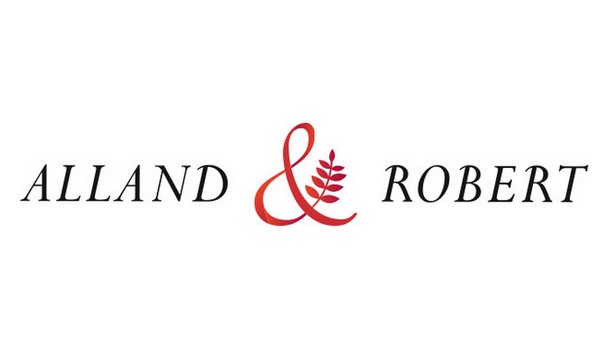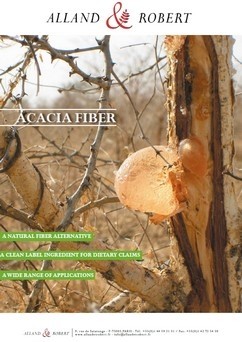Promotional Features
Acacia gum, a versatile ingredient for sugar-free food and drinks
The change of attitude towards sugar is one of the most important food evolutions of the last few years. In the food and beverages industry, reducing or eliminating sugar content is a necessity in order to address the health issues faced by the world population.
Reducing sugar consumption for better public health
Several scientific studies have recently pointed that an increased intake of sugar is associated with an increase in body weight in adults*. A high level of free sugar intake is not recommended by the public health authorities, as it is a risk factor for dental caries, and most importantly for obesity and risk of noncommunicable diseases (NCDs) like diabetes or cardiovascular diseases. Obesity has been increasing in all divisions of society since 1975, and today, almost 30% of the global population is overweight or obese.
Public authorities, consumers and brands must face and tackle this issue collectively. In Europe, consumer attention to added sugars is strongly increasing. In March 2017 the European Food Safety Authority (EFSA) announced that it will provide scientific advice on the daily intake of added sugar in food by early 2020**. Since 2015, the World Health Organization has published recommendations to reduce free sugar intake among adults and children. Countries and national authorities have used various policies to help educate consumers: pricing and fiscal measures, children interventions, advertising regulation, prescribing physical activity, changes in portion sizes. Taxation policies have been increasingly implemented in the past few years (for example in Belgium, Chile, Finland, France, Hungary, and Mexico) in order to increase the price of potentially unhealthy products such as foods high in salt, sugar or fat, or sugary drinks.
The food industry also has a role to play via the reformulation of products and the promotion of healthy diets. In fact, manufacturers add sugar to 74% of packaged foods sold in supermarkets, according to the “Guidelines on sugars intake for adults and children” from the World Health Organization. At the same time, consumers all over the world are asking for more naturalness and have the desire to minimize their consumption of products with too much sugar. Engaged consumers are better informed today, using the technological tools of our time to send alerts and make their voices heard. Several solutions have been developed in the last few years, such as smartphone apps designed to evaluate the food products sold in supermarkets. These tools respond to consumer needs because they provide assistance in making more informed purchases. The products are scrutinized by committees of independent nutrition experts who help formulate opinions and recommendations. Some applications specialize in specific nutritional aspects such as sugar content. This means consumers can scan a product’s barcode to determine instantly whether the product contains added sugar or natural sugar. Those consumer behaviors in recent years have shaped marketing messages, and allowed the emergence of “sugar-free”, “sugar-reduced”, and “alternative sweetener” products. Sought out because they are low in sugar and/or calories, these products can help prevent health problems such as high blood pressure, obesity, high cholesterol or even type 2 diabetes. That is why reformulating products with less sugar, fat and salt is an important trend right now in the food industry. This trend is reinforced by the necessity to prevent and address the obesity epidemic. Now the challenge for manufacturers of consumer products is to find a solution to reduce sugar content without diminishing the taste of their products and the experience they provide to the consumers.
Acacia gum helps with the formulation of sugar-free and sugar-reduced products
In order to find solutions, the food industry can count on acacia gum, a natural additive and ingredient sourced from the African Acacia tree. Acacia gum is a dried exudate coming from two varieties of Acacia trees. It has been safely used in food products worldwide for a long time, and is nowadays found in thousands of day-to-day products thanks to its various functional properties. It is particularly appreciated for being 100% natural and vegetal, and for the versatility of its applications.
Dr Isabelle Jaouen is the Director of the Research Center at Alland & Robert, one of the leading manufacturers of Acacia gum worldwide. She said: “Formulating sugar-free or sugar-reduced products to reach a satisfactory organoleptic profile and low-calorie content involves new formulation and can be challenging. As a texturing agent bringing low viscosity, Acacia gum can be a solution. Food companies are more and more using acacia gum with sweeteners in order to develop an innovative response to the demands of the consumers.”
Once a food or drink is reformulated with less or zero sugar, the texture can be strongly affected, to the displeasure of the final consumer. Acacia gum will help compensate for the loss of volume, texture and mouthfeel in sugar-reduced products. The rheology of the products will be improved by acacia gum, and it will favor nice colors and flavors.
Acacia gum is also known to bring stability factors by reducing the water activity, which means overall a better preservation. Additionally, it improves the softness and mouthfeel thanks to an increase of the water retention. Finally, acacia gum can be used in combination with sweeteners. For example, the loss of creaminess and bitterness that occurs in sugar-free food can be compensated by a mix of polyols such as sucralose and acacia gum. Or it can help with the addition of isomalt. Acacia gum will have a masking effect on the aftertastes sometimes generated by sweeteners and act as a bulking agent.
Acacia gum is also a fiber, and due to its physical and functional properties, it is a good ingredient to enhance the fiber content of food products without compromising the appearance, texture, or flavor of the food product. Professor Christian Sanchez’s team has been working with Alland & Robert for many years. Based at the University of Montpellier at the IATE* laboratory, the team comprises around 20 employees who have been involved for over eight years in research programs that should lead to discoveries of new uses for acacia gum. Professor Sanchez and his team think they have pinpointed new applications for this natural additive: “Because of its classification as a fiber and its emulsifying properties, acacia gum could, theoretically, be used in all formulated food products since it also has the advantage of being temperature stable. Think yogurts, dairy products and derivatives, as well as baked goods and, more broadly, any flour-based products.”
Finally, acacia gum also helps with the glycemic response of food and drinks: Studies have shown that it lowers the peak glucose response. The consumption of products where acacia gum is partially or totally replacing sugars is inducing a lower glycemic response than products not containing acacia gum. Thus acacia gum is a great asset for the formulation of healthy products, sugar reduced and sugar free products, and reduced glycemic index products. Acacia gum benefits also can be measured in areas such as bowel function, gut health, immunity, blood glucose control and glycemic index.
The French company Alland & Robert has been manufacturing acacia gum since 1884. Their focus on customized R&D and tailor-made customer service have led them to edit a documentation about acacia gum and sugar reduction. It can be requested for more information at: vasb@nyynaqrgeboreg.se
Alland & Robert will be at FI CONNECT 2020. Visit us virtually!
Visit our website www.allandrobert.com
*: http://www.actiononsugar.org/sugar-and-health/sugar-and-obesity/




